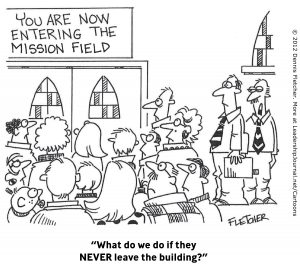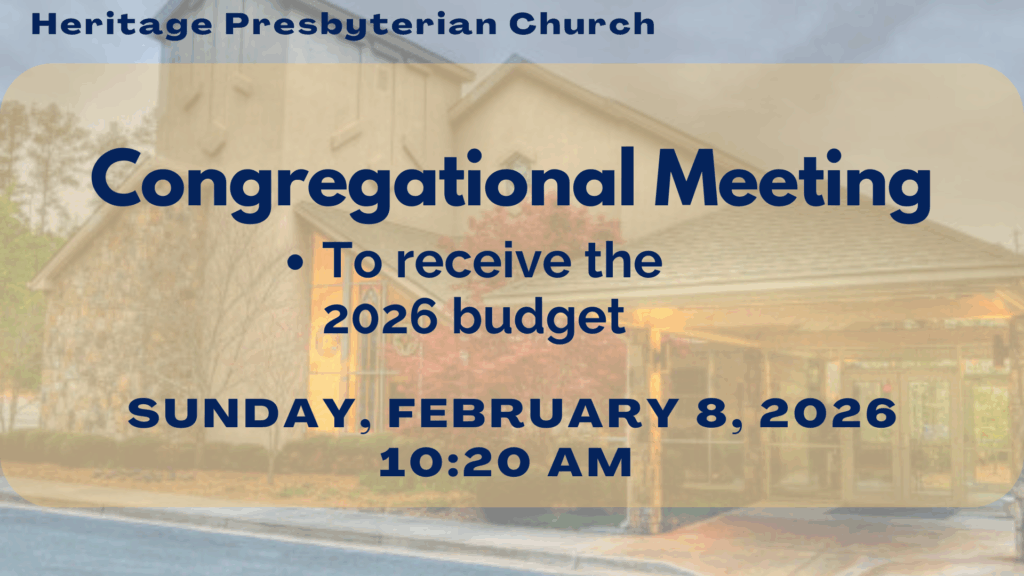 “How is it with your Soul?” is the question John Wesley would ask at the beginning of a small group gathering. Wesley was an 18th century Anglican priest, better known as an evangelist who started the Methodist movement. He traveled to England preaching the Gospel on the streets to thousands of people, forming societies to disciple converts to mature faith in Jesus through an emphasis on holiness of heart and life. These societies formed small groups called Bands that met on a weekly basis to pray, worship, and discuss the spiritual condition of their hearts. Although the discussions varied, the starting question was always the same.
“How is it with your Soul?” is the question John Wesley would ask at the beginning of a small group gathering. Wesley was an 18th century Anglican priest, better known as an evangelist who started the Methodist movement. He traveled to England preaching the Gospel on the streets to thousands of people, forming societies to disciple converts to mature faith in Jesus through an emphasis on holiness of heart and life. These societies formed small groups called Bands that met on a weekly basis to pray, worship, and discuss the spiritual condition of their hearts. Although the discussions varied, the starting question was always the same.
“How is it with your Soul?” This is such a personal, deep question. Educators know that you often have to warm up a small group, asking simple and safe questions to get a discussion going. Not so with Wesley, he dove deep from the very start, cutting to the chase and setting the tone for these group meetings – namely, that what they were talking about was both a serious and a personal matter.
Tonight, as we begin the season of Lent, this is the question that confronts us. We start a 40 day period of time, not including Sundays, that is designed to be an intense time of self-reflection and introspection. It reminds us of the time that Jesus spent in the wilderness following his baptism, described in the gospels as a time of trial and testing. Lent seeks to strip us down, remove those distractions in our lives, and helps us focus our attentions on what really matters in our lives – the very condition of our souls. Or, to put it in the words of Jesus at the end of our text this evening, where are our hearts?
For us, the word “heart” does not really carry the weight it did in Biblical times. We associate it with Valentine’s day and romantic love, and often leave it at that. In contrast, the word “heart” appears more than a thousand times in the Bible, and is seen as a comprehensive metaphor for the self. As Marcus Borg describes it, in Scripture:
The heart is an image for the self at a deep level, deeper than our perception, intellect, emotion, and volition. As the spiritual center of the total self, it affects all of these: our sight, thought, feelings, and will[i].
So, to identify where one’s heart is means identifying what is at the center of one’s core identity and motivations in this life. What is it that drives everything else?
Our text indicates that finding the location of our hearts is as easy as looking to where our treasures are. There are many things that we treasure, aren’t there? We first think about material possessions – our homes, cars, clothing, all the “stuff” that we have surrounded ourselves with to try to make us feel happy, successful and fulfilled. Other things we treasure because of their meaningfulness to us – a family heirloom for example, a childhood teddy bear. In my family of origin, there is an ongoing debate between my siblings and me about a set of plastic ketchup and mustard containers that look like pigs, and who will inherit them. They have minimal “real” value, but tremendous nostalgia for us – they are treasures. One commentator notes that:
“Treasure is defined by being a focus of attention, energy, imagination, and resourcefulness. While we often think of the treasures that Jesus warns against as material goods, “treasures upon the earth” is probably a wider category, encompassing not only physical possessions but such values as success, security, happiness, or even life itself [ii].”
We can treasure non-material things, too. Whether it is a focus on physical appearance, promotions at work, our reputation, or a gift or ability. There are many things in our lives that are important to us and that we value. Lent asks us to consider which of these “treasures” might be getting in the way of our relationship with God.
To help discern this, many use these 40 days as an opportunity to deny themselves something – from chocolate to soda to Facebook. I’ve even seen countless postings suggesting that people use this season to literally de-clutter their homes, from putting one item in a donation bag each day, to filling one bag each day, ending up with a pile of 40 bags of “stuff” that we no longer need. These can be valuable ways to help us identify where we really are placing our time and energy. But, Lent is about more than just depriving ourselves of something we enjoy or kicking a bad habit. And it has to be more than about a good spring cleaning for our homes. It is about where our heart is in all of this. The key to any of these practices of “giving things up for Lent” is to remember that by freeing ourselves from the binds of these other “treasures” in the world, we believe we might be more open to deepening our relationship with God. Our hearts have to have this intention in order to make it a spiritual practice, rather than just a self-improvement tool.
There’s another way some approach Lenten disciplines, and that is by adding a spiritual practice. One of my friends is using these 40 days to intentionally take walks on her own and be more aware of the world around her. She intends for these walks to be a way of embodied prayer, making her slow down and spend intentional time on her spiritual life. Often, additions like these incorporate the three traditional spiritual practices of Lent – Almsgiving (or service), prayer, and fasting. These ways of living out faith have deep biblical roots, and have been practiced by Christians throughout the centuries as a way of drawing closer to God. However, sometimes our best intentions for these practices end up misguided. As Patrick Wilson notes:
God gives us the good gifts of almsgiving, prayer, and fasting so that we may draw near to God, and we anxiously transform them into performances[iii].
If we aren’t careful, we turn these practices into being all about us – how pious and good we are at being Christian. They become just like treasures to us, distracting our hearts from what matters.
This is the caution Jesus is giving in the Sermon on the Mount to those who are practicing their faith in ways that are more about showing off to others than showing up with God. Lavish displays of how much money is placed in an offering plate, boasting about how much one does for the church to get the recognition of others, prayers that are over the top and meant for others to overhear (perhaps more than God), and fasting done to such an extreme that it is paraded around to garner the sympathy and respect of others. All of these examples, Jesus indicates, seem to miss the point. They have become more about the person’s ego than about their relationship with God. Jesus shines the spotlight in these examples on our tendency to be self-absorbed, even in our faith practices. In these instances, the heart is misplaced in pride and self-interest.
In our desire to be “seen by others,” “heard by others,” and “praised by others,” we lose touch with the very theological foundations of this faith: communion with and the glorification of God[iv].
Lent humbles us out of these ways, and seeks to help us get our hearts back in the right place.
Because when we start to really look around us, we realize that our hearts are often surrounded by “treasures” that may in fact be building walls around us that close us off from God. And on top of those treasures, we see all those other instances of ways in which we have become separated from the people God has created us to be. We notice our sinfulness, a painful reflection in the mirror and looming tower before us. On Ash Wednesday, we begin to break down those walls and are left with a mess. The dust of our mess marks us as we place ashes on our forehead. We are reminded of our sinfulness and our mortality. At the same time, though, we are marked with the cross, a reminder of whose we are, a God who not only sits on the hillside with us, but went to that same cross that marks us this night for us, so that sin and death would never have the final world. On this night, we can be marked with a sign of death because we know that we worship a God who can overcome it. Our ashes are a witness to our belief that we cannot do this on our own – we are solely and utterly dependent on God.
And so we speak the words of the Psalmist in prayer, “Create in me a clean heart, O God,” expressing our desire to get our hearts in the right place again, and humbly asking God to help us in that task. In these 40 days of Lent, may we trust God to put a new and right spirit within us, so that the treasures we have in this world, and indeed our very hearts, might also be with the Lord. Amen.
~Rev. Elizabeth Lovell Milford
[i] Marcus J. Borg, The Heart of Christianity: Rediscovering a Life of Faith, (New York: HarperOne, 2003).
[ii] Stanley P. Saunders, “Exegetical Perspective: Matthew 6:19-21,” Feasting on the Gospels, Matthew, Volume 1, Chapters 1-13, Cynthia A. Jarvis and E. Elizabeth Johnson, editors, (Louisville, KY: Westminster John Knox Press, 2013).
[iii] Patrick J. Willson, “Homiletical Perspective: Matthew 6:1-6, 16-21,” Feasting on the Word: Year A, Volume 1, David L. Bartlett and Barbara Brown Taylor, editors. (Louisville, KY: Westminster John Knox Press, 2010).
[iv] Douglas John Hall, “Theological Perspective: Matthew 6:1-6, 16-21,” Feasting on the Word: Year A, Volume 1, David L. Bartlett and Barbara Brown Taylor, editors. (Louisville, KY: Westminster John Knox Press, 2010).




 [Comic by Everett Patterson –
[Comic by Everett Patterson – 

